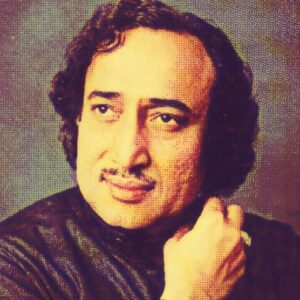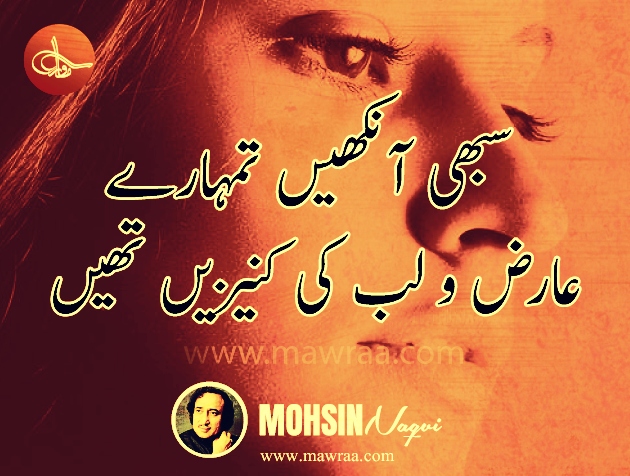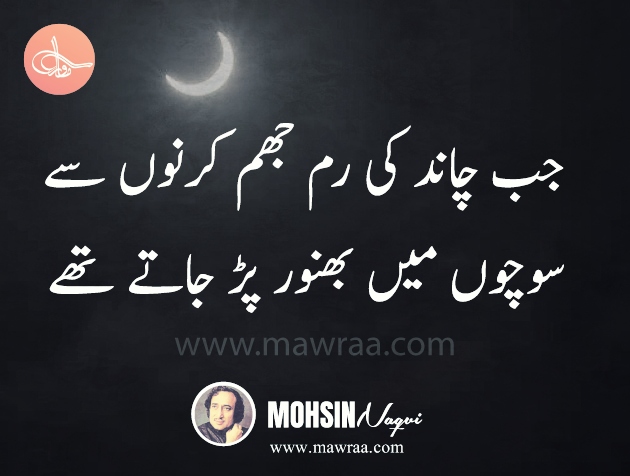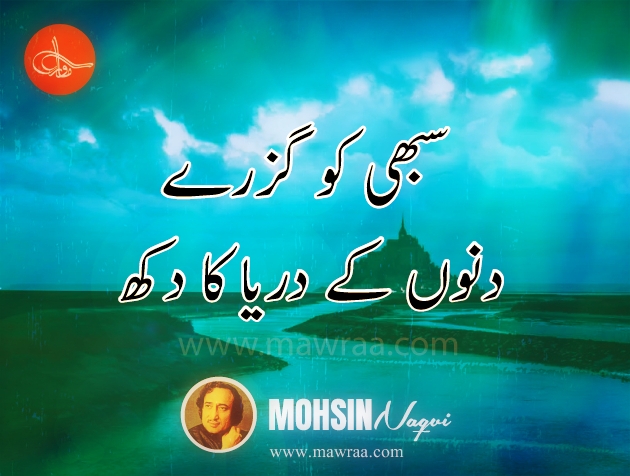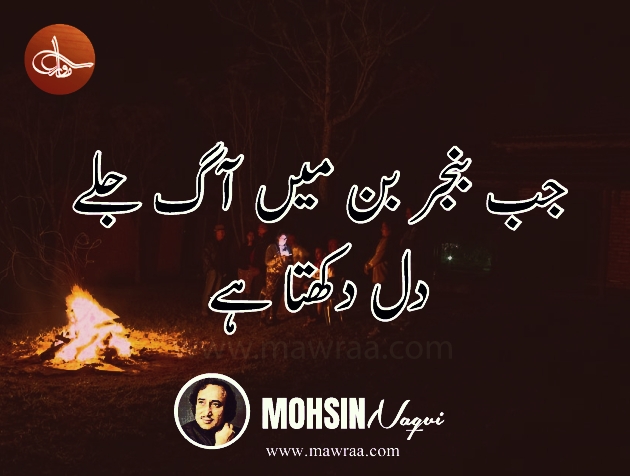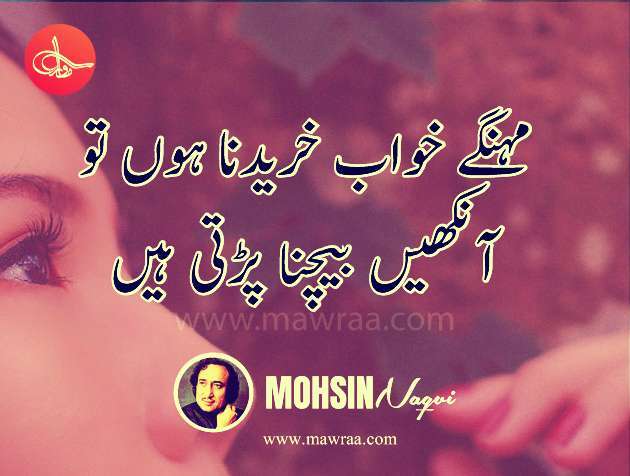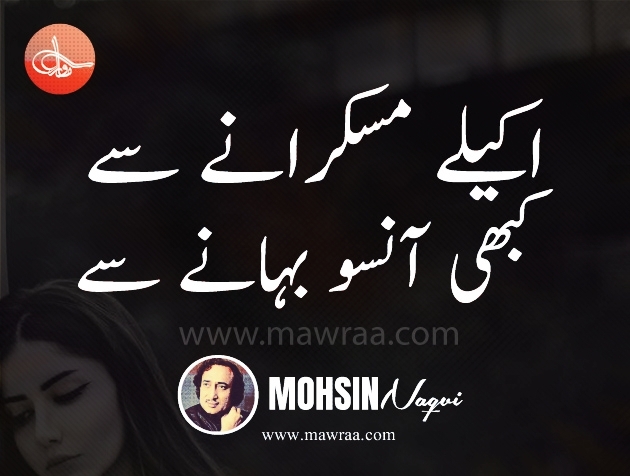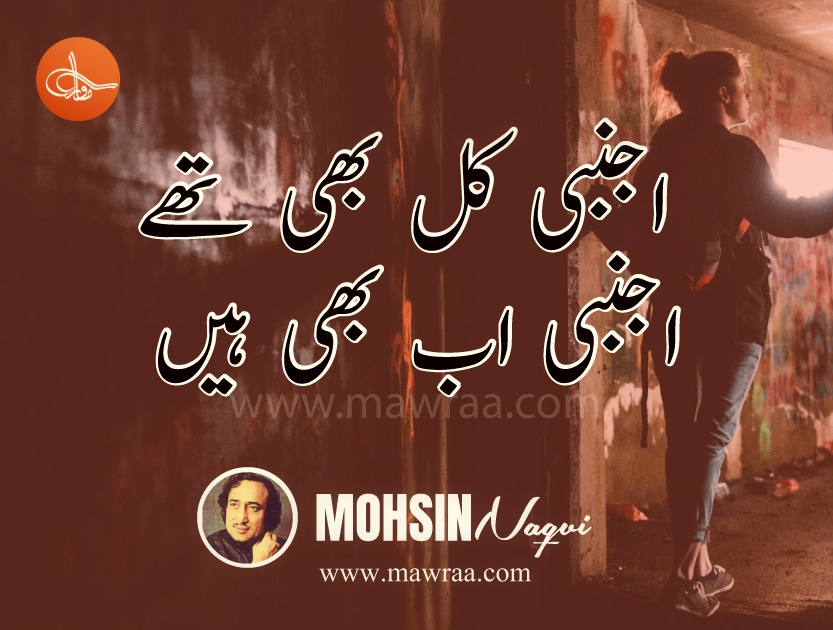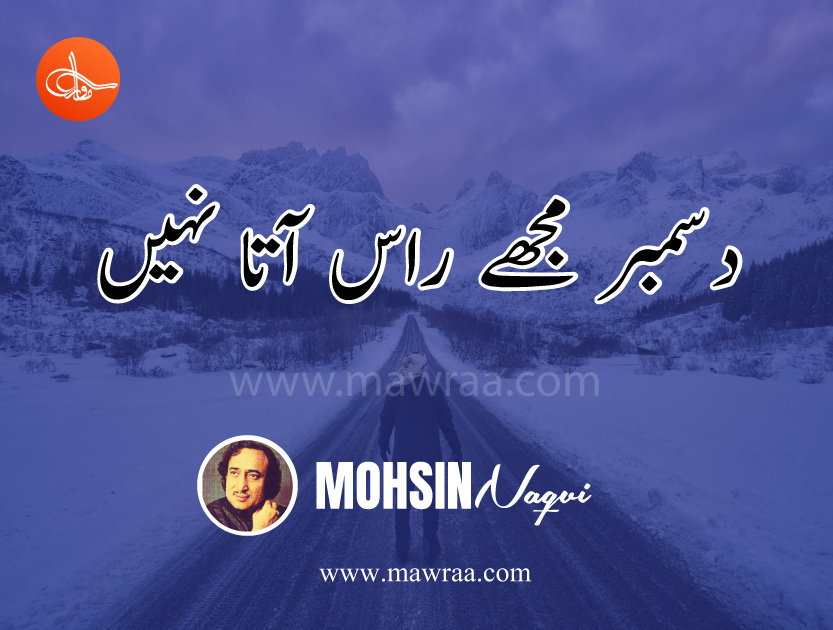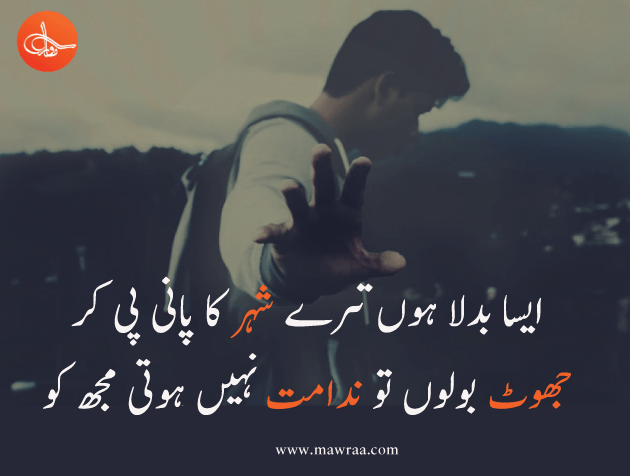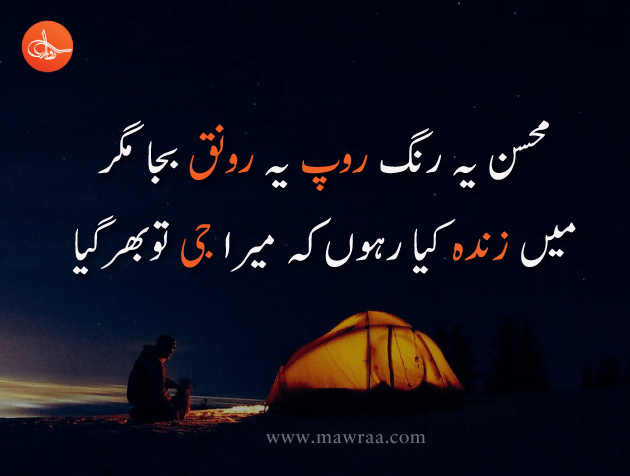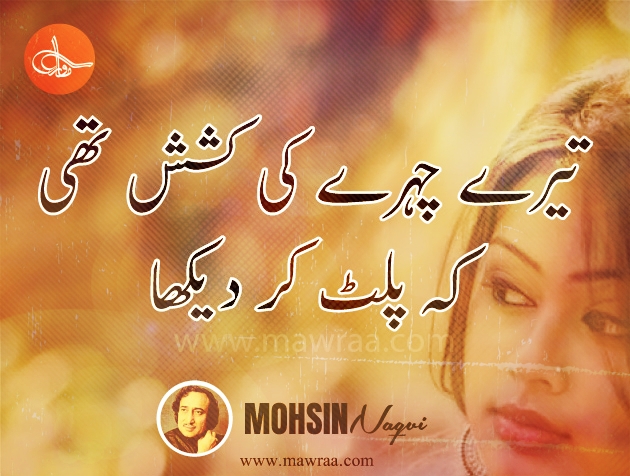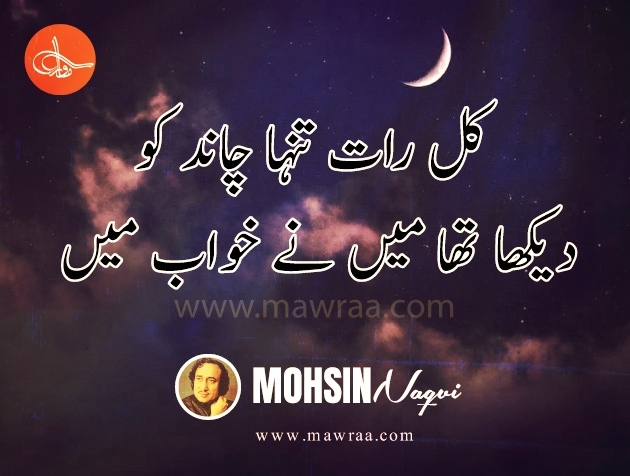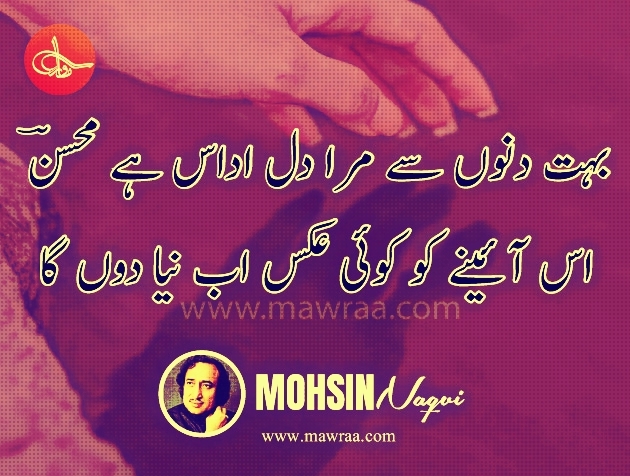Introduction
Mohsin Naqvi was a renowned Pakistani poet and a leading figure in Urdu poetry. He was born on November 8, 1952, in Tehsil Kabirwala, Khanewal, Pakistan. He was known for his powerful and thought-provoking poetry that explored themes of love, pain, and social and political issues.
Naqvi received his education in Lahore, Pakistan, and he went on to become one of the most influential poets of his generation. He published several collections of poetry and his works have been widely read and celebrated in Pakistan and around the world.
Naqvi was also a political activist, and he was deeply involved in the political and cultural life of Pakistan. He was a vocal critic of the government, and he used his poetry to address important social and political issues.
Naqvi died on January 19, 1996, in a car accident in Lahore, Pakistan. He was 43 years old at the time of his death, and his death was widely mourned in Pakistan and around the world. Today, he is remembered as one of the greatest poets of the Urdu language.
Early Life and Education
Mohsin Naqvi was born on November 8, 1952, in Tehsil Kabirwala, Khanewal, Pakistan. He received his early education in Lahore, Pakistan, and he went on to study at the Government College University in Lahore, where he received a degree in Urdu literature.
Naqvi was deeply interested in poetry from an early age, and he was influenced by the works of many great poets, including Mirza Ghalib, Faiz Ahmed Faiz, and Allama Iqbal. He began writing poetry as a young man and his works were soon recognized for their lyrical beauty, emotional depth, and philosophical insight.
Naqvi was a talented and dedicated poet, and he went on to publish several collections of poetry that were widely read and celebrated in Pakistan and around the world. Naqvi’s early life and education laid the foundation for his successful career as a poet and his contributions to Urdu literature.
A Career in Literature
Mohsin Naqvi’s literary career was distinguished by his potent and insightful poetry. He started publishing his poems in the 1970s, and his writing quickly gained acclaim for its poetic excellence, emotional heft, and philosophical profundity.
Themes of love, pain, and social and political difficulties were all tackled in Naqvi’s poetry. His poems addressed significant social and political concerns in Pakistan because he was a political activist there. His writings, which reflected his opinions on society, politics, and religion, gave the weak and oppressed a strong voice.
Famous Works of Mohsin Naqvi
Some of the most famous works of Mohsin Naqvi include:
- “Khuda Ke Saaye Mein” (In the Shadow of God) – This collection of poetry explores the themes of love, pain, and the search for truth and meaning in life.
- “Shaam-e-Sar-e-Shaair-o-Shaairi” (Evening of the Poet and Poetry) – This collection of poetry is a tribute to the great poets of the past and an exploration of the art of poetry itself.
- “Dard-e-Mohabbat” (Pain of Love) – This collection of poetry explores the themes of love, heartbreak, and the search for inner peace.
- “Mauj-e-Khalti” (Tide of the Moment) – This collection of poetry is a reflection of the political and social landscape of Pakistan and a critique of the government and society.
- “Hamari Zindagi” (Our Life) – This collection of poetry is a reflection of Naqvi’s views on life, love, and the search for truth and meaning.
Famous Urdu Poetry
The most famous Urdu poems of Mohsin Naqvi include:
- “Yaadon Mein Teri” (In Your Memories) – This poem explores the themes of love, longing, and the power of memories.
- “Main Hoon Be-Baak” (I Am Fearless) – This poem reflects Naqvi’s political views and a call to action for change and reform.
- “Panchi Ban Ke Udta Ja” (Fly Away Like a Bird) – This poem is a tribute to freedom and the human spirit and a call to break free from the chains of oppression.
- “Lafz-e-Dard” (Words of Pain) – This poem is a reflection of the pain and suffering that people experience in life and a call to find comfort and solace in love and friendship.
- “Main To Peechhe Chala” (I Followed Behind) – This poem is a reflection on the journey of life and the search for meaning and purpose.
Awards and Recognitions
Mohsin Naqvi was a highly regarded poet in Pakistan and around the world, and he received several awards and recognitions for his contributions to Urdu literature. Some of his notable awards and recognitions include:
- Pakistan Academy of Letters Award – Naqvi received this award in recognition of his outstanding contributions to Urdu literature.
- Pride of Performance Award – This award is one of the highest honors given by the government of Pakistan to individuals who have made significant contributions to the arts and literature.
- Ghalib Award – This award is given to individuals who have made significant contributions to Urdu literature and poetry.
- Ajoka Theatre Award – This award is given to individuals who have made significant contributions to the arts and theatre.
- National Book Foundation Award – This award is given to individuals who have made significant contributions to the field of literature.
These are some of the notable awards and recognitions that Mohsin Naqvi received during his lifetime, and they attest to his significant contributions to Urdu literature and poetry.
Social and Political Views
Mohsin Naqvi was known for his bold and progressive political views, and he was an outspoken critic of the establishment and the status quo. He was a staunch advocate for human rights, social justice, and equality, and his poems often reflected these views. Some of his notable social and political views include:
- Anti-Establishment: Naqvi was critical of the establishment and the political and economic structures that sustained it. He was an advocate for change and reform and believed that the status quo needed to be challenged and dismantled.
- Human Rights: Naqvi was a strong advocate for human rights and was particularly concerned about the treatment of women, marginalized communities, and minorities.
- Social Justice: Naqvi was a vocal critic of social and economic inequality, and he believed that everyone should have access to the same opportunities and resources.
- Democratic Values: Naqvi was a strong supporter of democratic values and was an advocate for freedom of speech, expression, and the press.
- Environmentalism: Naqvi was also concerned about environmental issues and the impact of human activity on the natural world.
These are some of Mohsin Naqvi’s notable social and political views, and they reflect his commitment to justice, equality, and the advancement of human rights.
Later Life and Death
Mohsin Naqvi’s later life was marked by his continued contributions to Urdu poetry and literature. He continued to write and publish new poems, and his work remained highly regarded and influential.
On January 12, 1996, Naqvi was assassinated in a car bombing in the city of Hyderabad, Pakistan. His death was a significant loss to the world of Urdu literature and poetry, and it sent shockwaves throughout the artistic and intellectual communities in Pakistan and beyond.
Conclusion
Mohsin Naqvi was a well-known Urdu poet, and his contributions to poetry and literature are still honored and remembered today. Naqvi was well recognized for his outspoken and progressive political beliefs throughout his life, and his poems frequently mirrored these views.
Poets, artists, and philosophers all around the world continue to be influenced by Naqvi’s poetry. His creations are still in high demand. He received several honors and recognitions for his services to Urdu literature.
Naqvi’s death was a major loss for Urdu literature and poetry, and it shocked Pakistan’s intellectual and creative communities as well as those around the world. His influence endures today, and his writing is still well-read and respected. Mohsin Naqvi was a very talented poet, and future generations will remember and honor his contributions to literature


